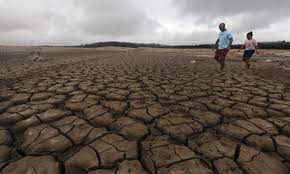
The International Monetary Fund (IMF) has announced its intention to visit Zambia in mid-April to evaluate the economic impact of the ongoing drought. With 84 out of 116 districts experiencing drought conditions, Zambian President Hakainde Hichilema declared it a national disaster and emergency, highlighting its devastating effects on food production and electricity supply. The country relies heavily on hydropower, which accounts for 80% of its electricity generation.
Initial assessments suggest significant crop losses, particularly with maize, a staple food crop that requires consistent rainfall. This failure has left many small-scale farmers without a harvest. Concerns are mounting among farmers regarding their ability to generate enough income to cover their basic needs, especially since approximately 70% of Zambians depend on food grown by small-scale farmers.
While some officials, such as Yotam Mkandawire from the Grain Traders Association of Zambia, claim that the country is currently food secure, aid organizations like Oxfam warn of acute food shortages affecting up to six million people until the next growing season. President Hichilema has pledged to redistribute food from surplus areas to districts in need and has appealed for international assistance to address the crisis.
The situation underscores the urgency of addressing both the short-term needs of those affected by the drought and the longer-term challenges of building resilience against future climate-related shocks. It also highlights the importance of international cooperation in responding effectively to such crises.
